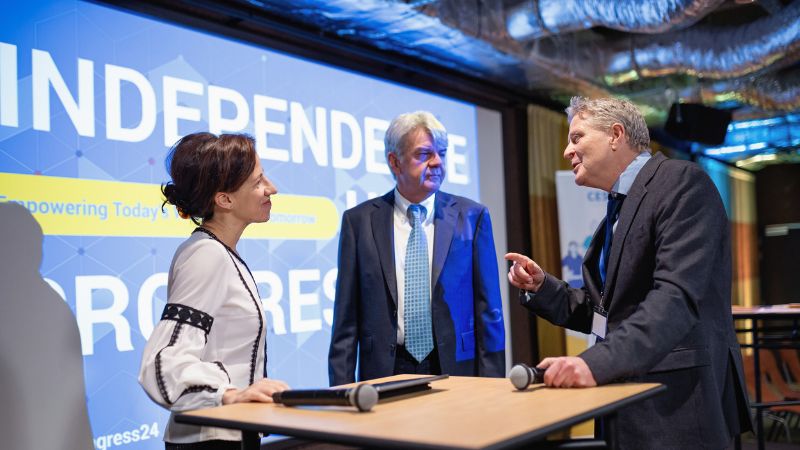Commission conference ‘A social agenda for transport’: Yes, we need adequate EU institutional support for sectoral social dialogue!




Today, the European Commissions hosted a long-awaited high-level conference on 'A social agenda for transport'. During a panel discussion dealing specifically with the role of sectoral social dialogue in the transport sector, sectoral social dialogue committee representatives welcomed the Commission's stated intention for a 'new start' for (sectoral) social dialogue in the EU but stressed that adequate support by the EU institutions is necessary for this. CESI agrees and adds that this is not only true for the field of transport policy but for social dialogue in other sectors, too.
The panel which discussed ‘How to strengthen the involvement of social partners in the EU transport policy’ featured six chairs/co-chairs and representatives from different EU sectoral social dialogue committees of the transport sector. The chair of the rail sectoral social dialogue committee Greifelding was among the speakers that stressed very clearly that better financial and resource-oriented support by the European Commission is urgently needed if EU sectoral social dialogue is to be reinforced, further strengthened, and made more effective and operational. Only in this way can social progress be realised, he concluded.
The representative of the ports sectoral social dialogue committee Kerdjoudj-Belkaid added that more respect and support for sectoral social dialogue is also desirable from the side of the EU Member States in the Council of Ministers.
As a recognised social partner actively involved in four different sectoral social dialogues, CESI also demands that the EU institutions should all give sectoral social partners a more systematic role in the European political discourse than is currently the case. However, as CESI Secretary General Klaus Heeger made it very clear: “The actors have to open their doors to a broader representation. Otherwise, the legitimacy of the sectoral social dialogues will always be put in question.”
Apart from the workshop on social dialogue, the conference also dedicated separate sessions to topics such as “How to prepare the transport workforce for the future?”, “How to promote transport professions for young people and women?”, and “How to combat persistent problems of illicit employment practices and disloyal social regimes competition?”
Further information about the conference can be accessed on the European Commission’s webpage.

Image Gallery
Commission conference ‘A social agenda for transport’: Yes, we need adequate EU institutional support for sectoral social dialogue!
Related videos
Similar Posts


Urgent call by European civil society to the European leaders and the leadership of the EU
As a proud member of the European Movement International (EMI), CESI fully supports the urgent call to defend democracy, uphold fundamental rights and the rule of law, and strengthen the EU’s capacity to act in the face of geopolitical challenges.
Get in touch
with us
Confédération Européenne des Syndicats Indépendants (CESI)
Contact form
Stay up to date
Don’t miss a thing and subscribe to our newsletter
Subscribe now and receive newsletters and much more!


